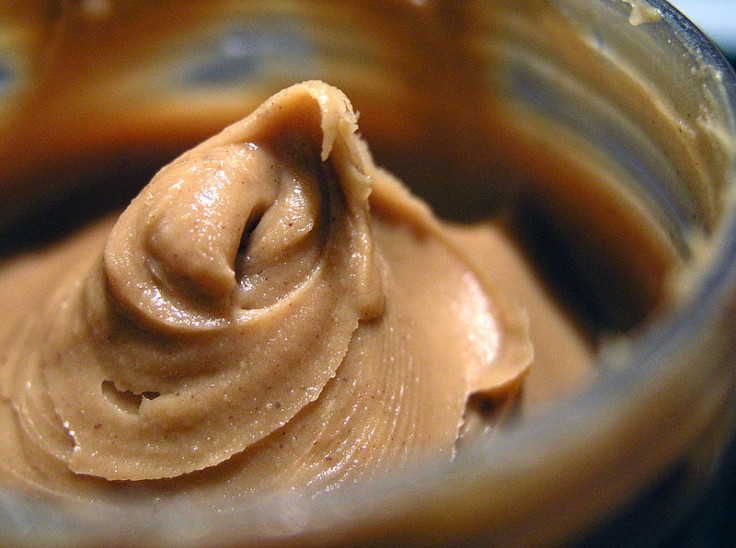FDA Suspends Sunland Peanut Butter Operations After Salmonella Outbreak, Employees Putting Bare Hands Into Peanut Butter

Food and Drug Administration officials suspended operations at the country’s largest organic peanut butter plant after a salmonella outbreak was traced to it. The shutdown of Sunland Inc.'s New Mexico factory is the first time the FDA has used new powers it was given by a 2011 food safety law.
The Associated Press reported that the FDA made the decision official on Monday, effectively preventing Sunland from producing or selling any organic peanut butter products from that plant. The salmonella infected 41 people in 20 states. Most victims were children.
Much of the infected peanut butter was sold at Trader Joe’s stores across the country, although Sunland also listed Whole Foods, Target, Safeway and other major retail chains as clients. A company spokesperson did not comment on the situation but did express hope that Sunland would distribute food products again by the end of the year.
“Consumers can be assured that products will not leave this facility until we determine they have implemented preventive measures that are effective to produce safe products,” FDA Deputy Commissioner for Foods Michael Taylor said, according to Yahoo News.
Before the food and safety law of 2011, the FDA would have had to bring Sunland into court before being able to stop production, even with the knowledge some foods were contaminated with salmonella. Now, food safety officials only need a “reasonable probability” that products pose a health risk to suspend their production and distribution.
Sunland must now prove to the FDA that its food facilities are clean and do not pose a contamination risk. Federal inspectors found 28 salmonella violations during a month-long investigation this fall and, during a similar inquiry in 2007, it found that employees stuck their bare fingers into jars of peanut butter.
Equipment inside the New Mexico plant was unclean, and raw peanuts were found to be exposed to birds and other animals before they were turned into butter spread.
“At no time in its 24-year history has Sunland Inc. released for distribution any products that it knew to be potentially contaminated with harmful micro-organisms,” Sunland CEO Jimmie Shearer said. “In every instance where test results indicated the presence of a contaminant, the implicated product was destroyed and not released for distribution.”
The FDA's findings point to Shearer’s comments being false, and the company’s internal testing devices were so poor that they failed to test for salmonella even when it was present.
© Copyright IBTimes 2024. All rights reserved.











